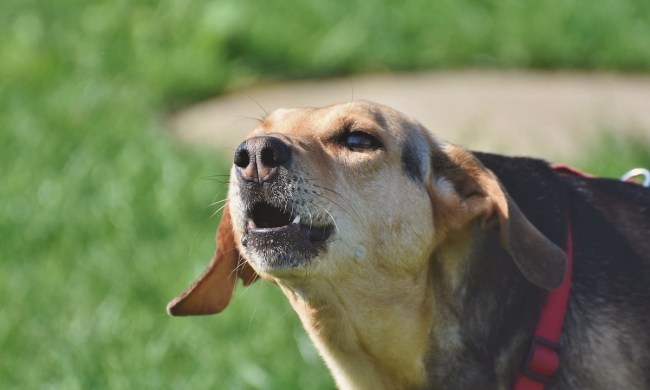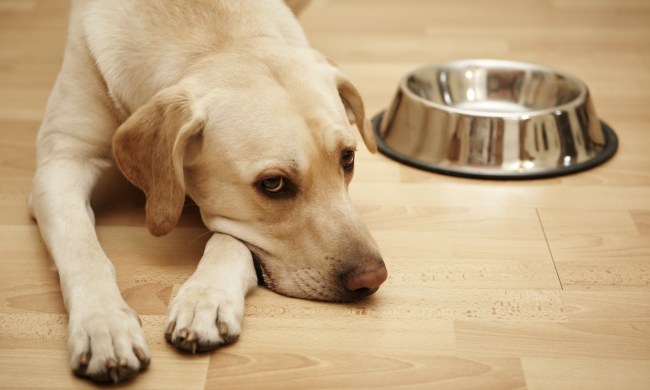Some dogs are finicky eaters, demanding only the finest in life. On the other hand, some dogs will chew anything and everything. Your shoes, your furniture, and even the remote control might seem appetizing to chow hounds. If your dog is prone to the occasional dietary indiscretion, a term used by veterinarians in reference to dogs eating nonfood items, you may think taking your pup for a walk might help curb this behavior.
But what happens when your dog turns his attention to leaves, sticks, pine cones, and even flowers? If you’ve ever frantically searched “how to keep my dog from eating plants,” this is the article for you. We’ll give you the rundown on why the world is not your dog’s salad bar, and teach you how to stop his snacking once and for all.
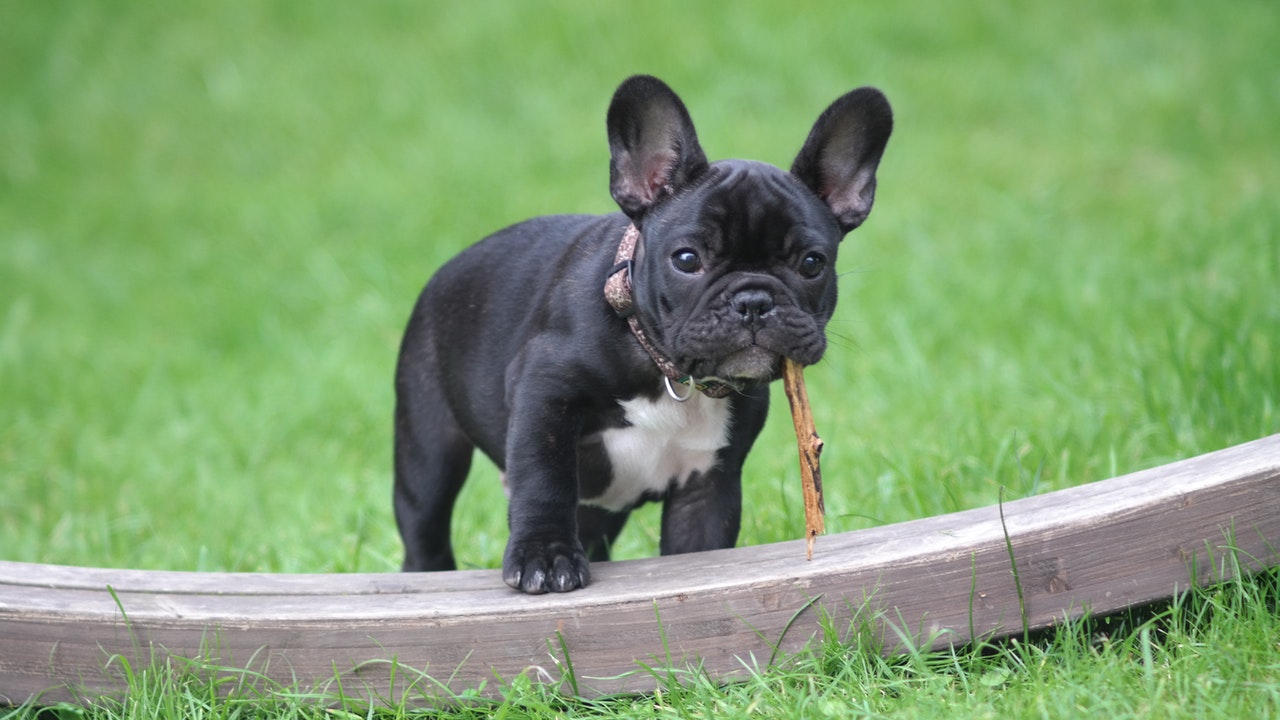
How do you stop your dog from eating plants?
Does your dog like to nibble on sticks, leaves, and grass? Well, let’s start off with the good news: There’s usually nothing to worry about if your pup only eats a small amount. According to the American Kennel Club (AKC), “Leaves and grass are not technically harmful, but, in large amounts, they can cause a blockage, especially in puppies.” Unfortunately, flowers, berries, garden plants, and even some tree leaves are toxic if your dog ingests them.
You can prevent your dog from eating indoor plants by placing them in plant stands or displaying them on out-of-reach tables. (We recommend sticking to pet-safe plants just to be on the safe side.) But what about when you’re taking your pup for a walk? Firmly tell your dog, “No,” when she approaches plants, flowers, and leaves. When she returns her attention to you, make sure to heap on lots of praise – and maybe reward her good behavior with a treat or two.
Another alternative is clicker training. While you can begin training your dog as early as eight weeks of age, young puppies have short attention spans. Some pups, like Magic, who performed adorable puppy push-ups at just 10 weeks of age, will catch on quickly, and others will require more repetitions before they understand what you expect from them. Keep sessions short and sweet: Try to keep your training at around 5 to 10 minutes when you’re first starting out, and gradually increase your sessions until they’re around 10 to 15 minutes apiece. Try to schedule multiple sessions throughout the day rather than packing it all into one lengthy session. It also helps to train your dog at the same time each day, preferably before meals, as this makes the treats she receives for good behavior all the more appealing.
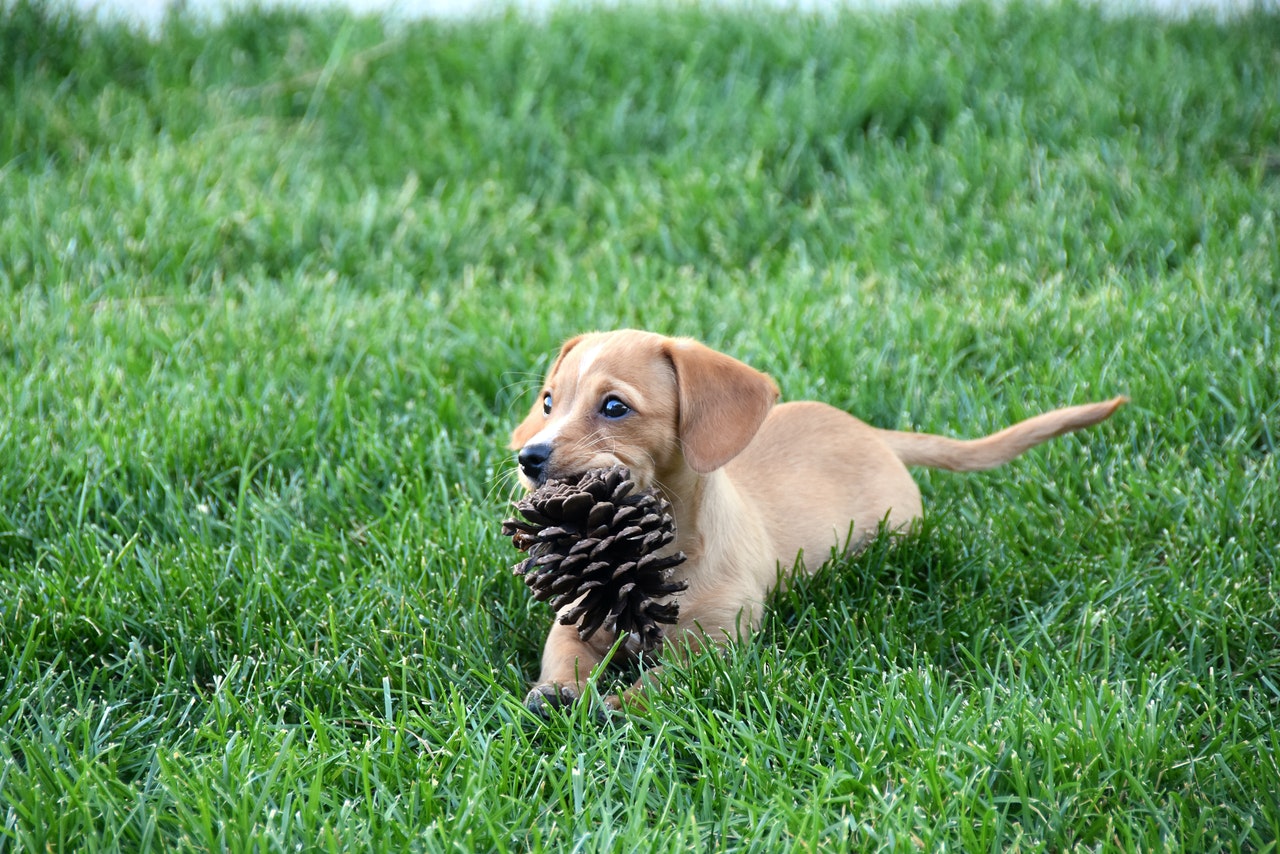
How do you stop your dog from digging?
If your pooch likes to eat plants, there’s a good chance he’s also fond of digging. Some dogs dig because they want to expose the cool soil beneath the grassy surface, giving them a nice place to chill out on hot days. Others are trying to track down prey, like moles, voles, or groundhogs. Unfortunately, the experts say that many dogs who frequently dig holes are either suffering from separation anxiety, or else they’re extremely bored. Here are a few things you can do to keep your pup from digging up your yard.
Protect your plants
Have a green thumb? The last thing you want is for your dog to destroy the garden you’ve worked so hard to cultivate. Fencing off the area you want to protect (or using chicken wire as a deterrent) should keep your rambunctious fur baby from unearthing your plants.
Make digging unappealing
If you don’t have an outdoor garden but are still sick and tired of your dog digging holes in your yard it might be time for an outdoor overhaul. Using a substance like pea gravel instead of grass will keep your pup from tunneling his way into the ground. Dogs don’t like the way gravel feels beneath their toe pads, so they’re unlikely to continue digging in an inhospitable environment.
Make sure your pup gets plenty of exercise
Whether your dog is bored, anxious, or a combination of the two, exercise is extremely beneficial – and it may even help curb his unwanted behaviors. Not only is exercise important to your dog’s physical well-being, but active dogs are much less likely to suffer from mental disorders than dogs who lead sedentary lifestyles. We recommend taking your dog for daily walks. If you have the time, a brisk walk in the morning and again in the evening will help your dog burn off excess energy. You should also provide your pooch with mentally stimulating toys, such as puzzle feeders, so he won’t become bored while you’re away from home.
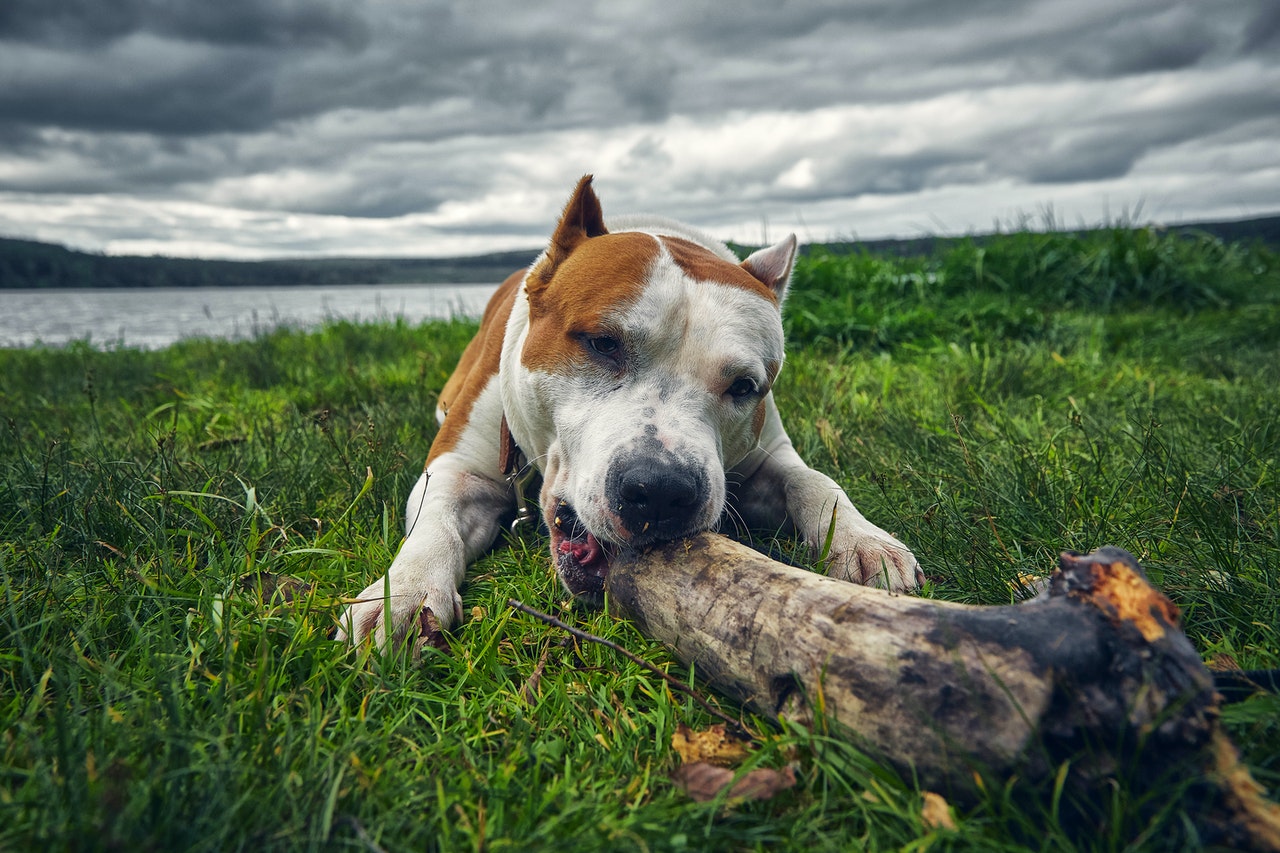
Dogs misbehave for a variety of reasons, but there’s one thing you should always keep in mind: Your dog isn’t trying to misbehave. When pups chew plants and flowers – or dig up the yard – they’re trying to communicate with you. Maybe they’re saying, “I’m curious and want to investigate.” Or maybe the message is, “I’m bored.” Once you learn to decode what your pup is telling you, you’ll be able to break his bad habits for good.

